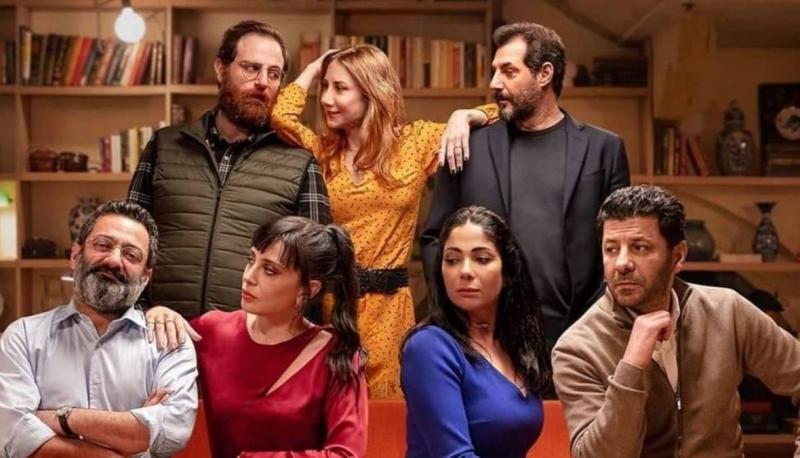The Egyptian Actors' Syndicate, headed by Captain Ashraf Zaki, issued a statement regarding the crisis surrounding the film "Ahsan Wa La Az," which stars the Egyptian actress Mona Zaki along with several other stars, and has sparked considerable debate.
In its statement, the syndicate emphasized "basic constants, the most important of which is preserving creative freedom in a civil state that believes in freedom as an essential part of Egyptian artists' essence, which the syndicate protects and defends." It stated that "the syndicate will not stand idle in the face of any verbal assault or attempted moral intimidation of any Egyptian artist or targeting them due to a work of art they contributed to with its writer and director. The syndicate will support actress Mona Zaki if anyone attempts to take any action of any kind against her as a member of the syndicate."
The statement continued: "The role of the arts and soft powers is to address thorny issues and to sound the alarm on many phenomena that may seep into our society, which Egyptian artists and creators must confront with their works, revealing many of these issues and delivering warnings to everyone. This is the general role of art and the specific role of the performing arts."
The syndicate called on everyone not to target its member artists merely for participating in a project that some may agree or disagree with.
Many artists have expressed their support for Mona Zaki following the controversy surrounding "Ahsan Wa La Az," since its release on Netflix on January 20th. Critics of the film argue that it promotes homosexuality and goes against the values of Arab societies, leading to calls for its ban and legal actions against it.
Actress Hend Sabry congratulated the film's cast, stating, "Congratulations to my friends in the film," while actor Ahmed Fahmy remarked that "the attack on the film does not diminish or increase Mona Zaki's artistic value," expressing surprise at the public's ethical criticism of the work and Mona Zaki, while they support global artist Rami Malek after winning an Oscar.
Actress Elham Shahin defended "Ahsan Wa La Az" and its stars, expressing her admiration for it and praising Mona Zaki's performance, saying: "Mona is a wonderful actress, and she delivered one of her most important roles. The film is great by all standards and has nothing that could offend any sensitive individuals who want cinema to raise the banner of 'do not touch.' The issue is limited to a boldness in dialogue, which is, by the way, realistic and could indeed occur among any group of friends; I don’t understand where the problem lies."
Singer Carol Samaha stated: "I really liked the Arabic version of 'Ahsan Wa La Az.' Excellent performance from all the actors, and the script and direction are well-executed. A special salute to the creative Mona Zaki. I always admire realistic works that reveal hidden truths, break taboos, and present facts as they are…keep going."
Nesma Mostafa commented: "So must our differences be noisy? Can’t we disagree quietly? In all our differing opinions on any subject, we turn back into our families and families from the old days, an utmost lack of civility. Each person is entitled to their opinion based on their psychological makeup, the environment they were raised in, and their convictions."
It is worth noting that "Ahsan Wa La Az" is the first Arab film produced by Netflix, starring Mona Zaki, Iyad Nassar, Adel Karam, Nadine Labaki, Diamond Aboud, and George Khabbaz, directed by Wissam Samira, in his first directorial experience. The film's plot revolves around a group of seven friends who gather for dinner and decide to play an entertaining game, where everyone places their mobile phones on the dinner table, with the condition that any incoming messages or calls are visible to all present. What begins as an enjoyable and interesting game quickly turns into a barrage of scandals and secrets revealed through the open phones, unknown even to the closest friends.




